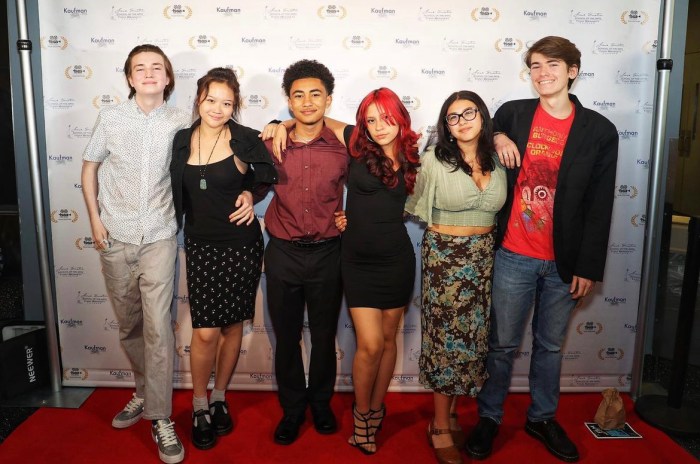By Kevin Zimmerman
After watching John Attanas’ new play, “All Gone West,” at the Teatro Circulo in the East Village through April 18, it’s hard to say if he likes his hometown or not.
Set in New York City in the early 1950s, Attanas, who still lives in the Forest Hills home in which he grew up, has written a bittersweet love note to Gotham, that sometimes reads like a “Dear John” letter.
The lead character, Sam Samos, toils as a bartender in a midtown saloon but dreams of opening a jazz club. One night he meets Mary Brady, who is out with her married boyfriend, and proceeds to woo her.
Mary’s boyfriend, Joe, is a professor at City College and a sloppy drunk. Born and bred in the Bronx, Mary works as one of his secretaries in the Economics Department.
They’re not a good match.
But that doesn’t stop Mary from waiting for Joe to divorce his wife — which he repeatedly says he never will — and to wed and whisk her off to his upper-middle class existence in Yonkers.
“Life is all about economics,” Mary tells Sam one night.
Mary dreams about escaping the city, which she calls a dirty, degrading and dying place.
She has her sights set on California, where a man like Sam can make a lot more money doing the same type of work he does in New York.
Sam, however, sees the Big Apple as the only legitimate place to open his jazz club. Yes, they have jazz in Los Angeles, he says to Mary, but West Coast jazz is without blood and balls.
As Sam, Joseph Robinson captures the essence of a man, who pushes to make his dreams come true, despite what life and everyone else around him, says otherwise. He adores Mary, but he also loves jazz and New York. Robinson nicely shows the struggles Sam faces as he tries to balance those parts of his life that are at cross purposes.
Kristen French as Mary pulls off a nice trick of embodying this pragmatic woman, who despite her feelings for Sam, knows happiness doesn’t reside at the Ninth Avenue hole-in-the-wall jazz club, but somewhere warm and green with endless economic opportunities like suburban L.A.
French’s Mary is dour and all business — it’s hard to understand what Sam sees in her — until she makes it to California and her better future.
She goes from her conservative business attire to a one-piece bathing suit and sun hat.
But French embodies an even greater change in her character. Mary no longer wears the sour look she sported throughout the proceedings. Her spirit has been reborn in the land of eternal summer. She knows this is where she and Sam belong, even if he doesn’t.
Director Jonathan Fluck wisely opts to include an on-stage jazz quartet to help move the story along. He is also able to wring good performances from the featured players, particularly Glen Williamson as Joe, and Kristen Booth in a multitude of roles, including a call girl and a mob hit man, who brings a much-needed sense of levity to the show.
Attanas said he set out to write a play about people wanting things and not getting what they want.
He doesn’t see it as being anti-New York City or even about failures. For Attanas, the show is about success and what that means to different people.
Sam loses his jazz dreams along the way, but captures Mary’s heart and ends up in a place where he never has to worry about money again.
One could argue Sam’s story is ultimately a success. But it is also clearly a failure.
































